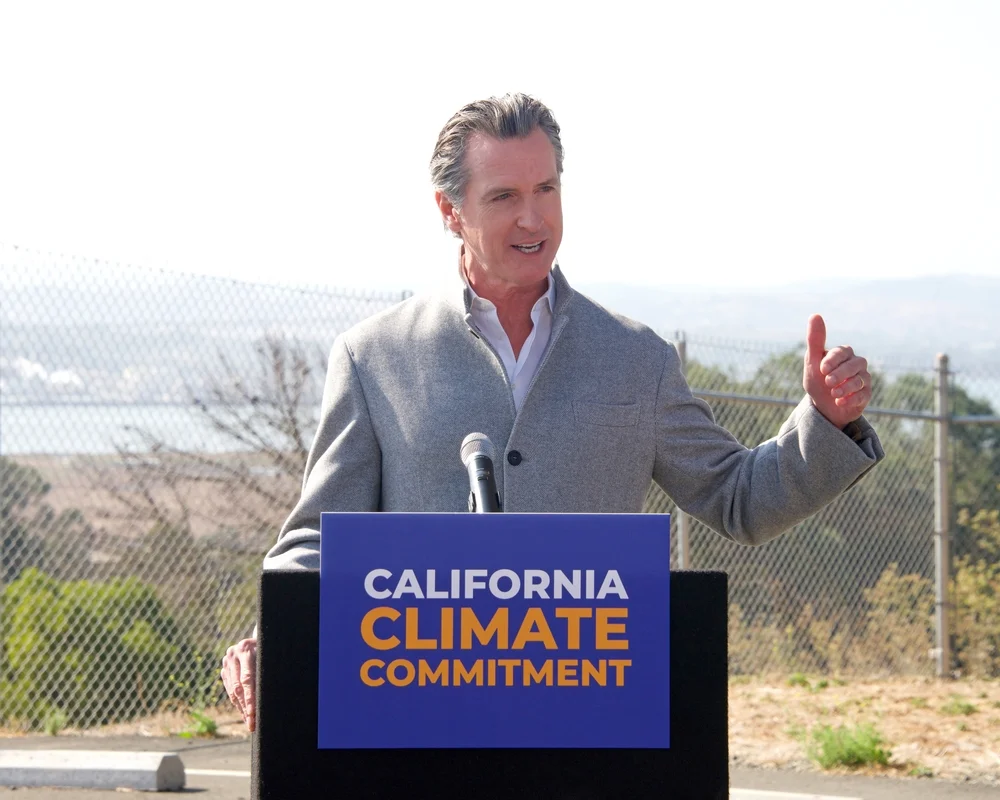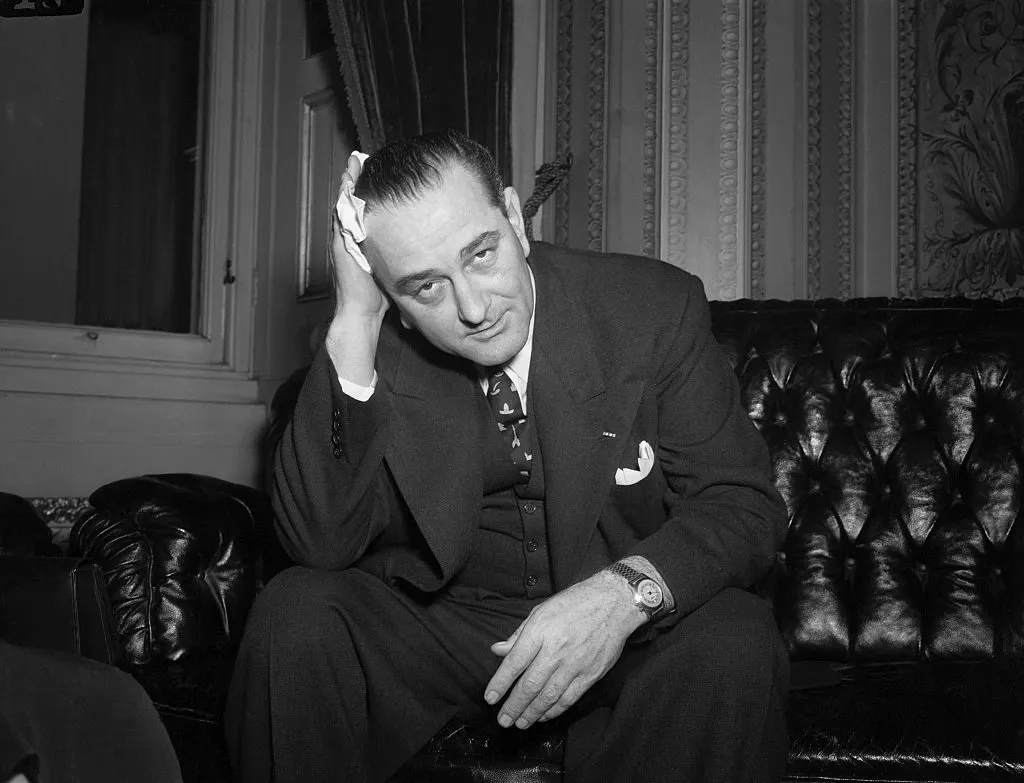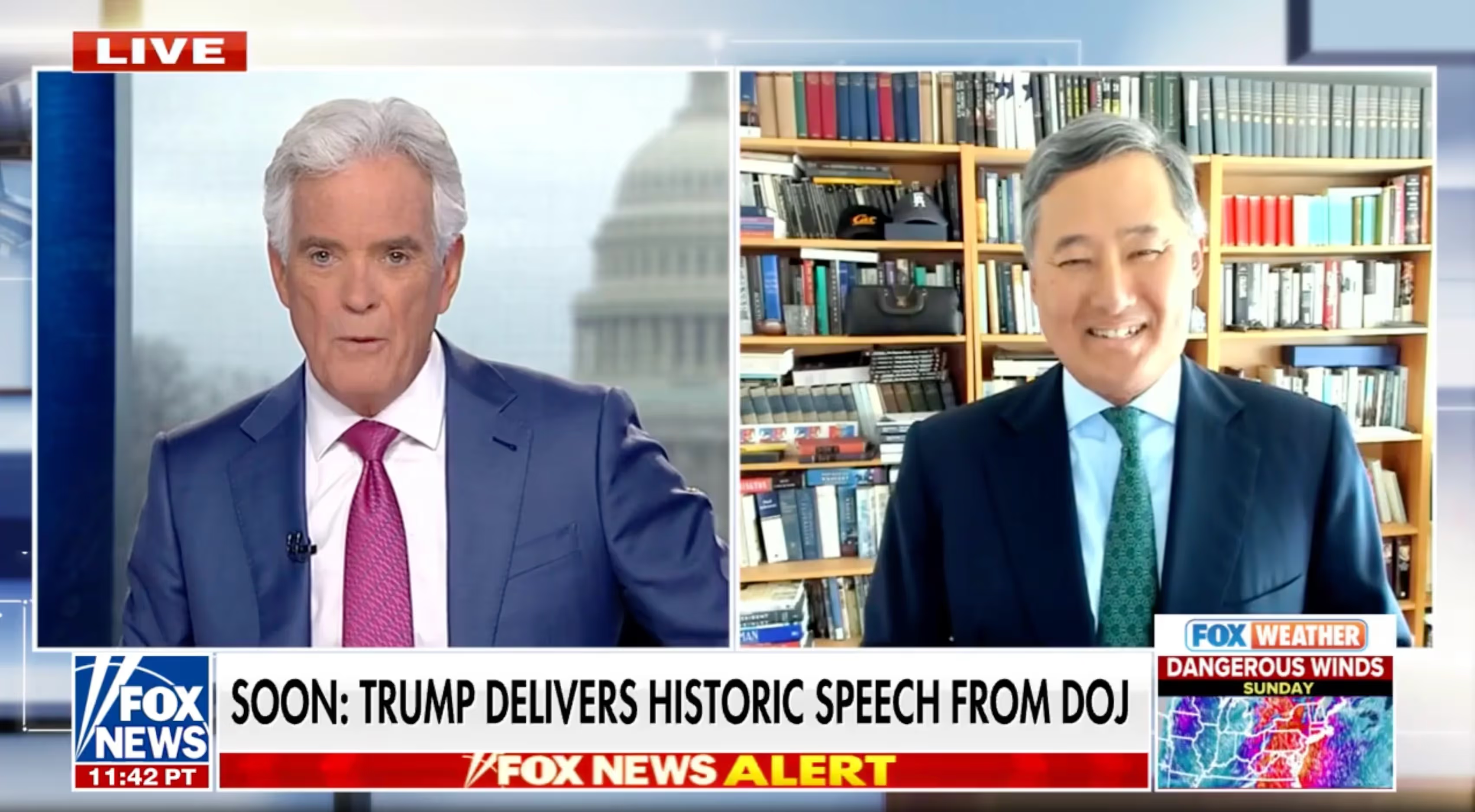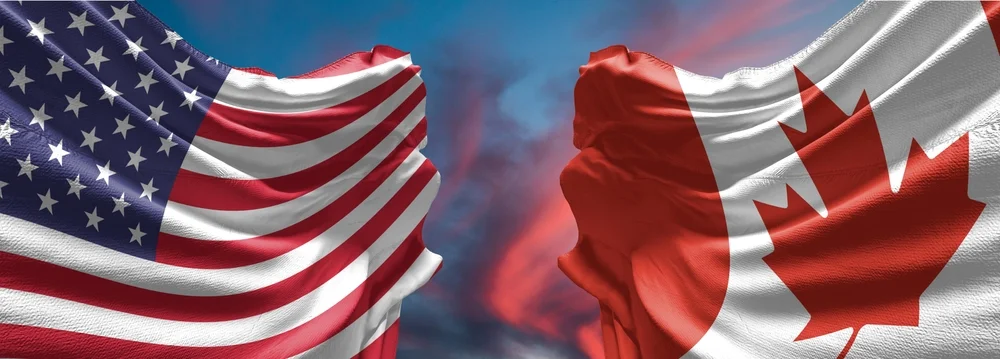
The Tanenhaus Variations
Sam Tanenhaus, at one point in the text, notes that Buckley did not always choose his friends and business associates wisely; might that observation include the choice of Tanenhaus as his biographer?
According to surveys and Amazon Kindle data, an astonishingly high proportion of readers never make it to the end of non-fiction book, so in confronting Sam Tanenhaus's long-awaited authorized biography of William F. Buckley, Jr. that clocks in at 866 pages of main text, it might be best to start on the final page, where he delivers this summary judgment:
In his time, as in our own, no one could say what American conservatism was or ought to be. Buckley himself repeatedly tried to do it and at last gave up. But for more than half a century, millions of Americans could confidently say who had been the country's greatest conservative, William F. Buckley, Jr.
In clearing so large a place for himself, he left a vacuum no one has since been able to fill. This is the absence so many feel today—adversaries and apostates as well as advocates and admirers. A founder of our world, he speaks to us from a different one, beyond our reach but hovering near, if only we can discover in ourselves the imagination and generosity, the kindness and warmth, that Bill Buckley demonstrated time and again in his long and singular life.
A reader who does not persevere to the very end might not expect this warm and respectful conclusion at many points along the way, where Buckley's defects are presented to strong effect. There is much to criticize and much to appreciate in this extraordinarily researched book, first committed to by Tanenhaus back in 1998, with the long interval since leading many to wonder if he would ever complete the project.
Some wondered if Tanenhaus had a case of writer's block that derived from an ideological dilemma. Tanenhaus is a liberal who professes to respect conservatives and conservative ideas. While he is likely sincere, he often betrays a subconscious condescension toward conservatism that is typical of most liberal writers who attempt to grapple with the subject. This can be best seen in his 2009 book The Death of Conservatism, which aged worse than buttermilk under a hot sun, coming as it did right before the spontaneous rise of the Tea Party gave new life and energy to the right after the Obama juggernaut seemed to launch an enduring new liberal era. Tanenhaus would likely double down today on his title with the suggestion that the triumph of Trumpian populism and its capture of the conservative movement has indeed killed off the old conservatism of Goldwater-Buckley-Reagan-and Milton Friedman, and indeed early in this biography Tanenhaus tips his hand with the suggestion that Buckley was ill-fitted for a Middle-Class oriented GOP. Conservative readers had plenty of reason to worry whether Tanenhaus could be trusted to write Buckley's authorized biography, with the disposition to explain Buckley as he understood himself, as opposed to how liberals understood him.
Yet Tanenhaus won a lot of goodwill with conservative readers with his fine 1997 biography of Whittaker Chambers, which Tanenhaus admitted at the time had "chastened" his previous liberal views on the Cold War and the cause of anti-Communism. There was a lingering fear that he might succumb to what I have diagnosed as "Perlstein Syndrome," after the strange case of leftist historian Rick Perlstein. His first well-crafted book, Before the Storm: Barry Goldwater and the Unmaking of the American Consensus, was likewise well-received and favorably reviewed by conservatives when it appeared in 2001. Dismayed by this conservative enthusiasm, Perlstein didn't make the same mistake in his several sequel books on Nixon and Reagan, where his tone about his subjects was decidedly more snarling and churlish.
Tanenhaus avoided becoming another Perlstein, but it is hard to escape the suspicion that he has attempted to straddle the desire to preserve his liberal street cred alongside a genuine fondness for his subject and regard for conservative readers. However, he produced an uneven book, with excessive detail and overlong digressions for contextual purposes, as well as very selective attention to many issues and ideas that Buckley addressed throughout his long career. Perhaps, as more than one reviewer has already suggested, the book should have been even longer, or perhaps two volumes. One wonders how much material was left on the cutting-room floor during the editing process.
Buckley's complete cooperation enabled Tanenhaus to offer a wealth of information not available to previous biographers, thus allowing a more in-depth look at many aspects of Buckley's personal life. He offers a copious history of the wider Buckley family, including their many personal struggles with depression, alcoholism, and other misfortunes, along with considerable attention to the family patriarch William F. Buckley, Sr. and his far-flung and often troubled business interests, along with extensive details of Bill's early upbringing, education, and travels throughout the world. The comings and goings, as well as the struggles, of his siblings receive extensive notice, as do the friendship and ultimate estrangement with his early friend, collaborator, and brother-in-law, Brent Bozell. There is so much on the family that a 250-page book could easily be extracted and called The Buckleys.
Many readers will find this family backstory overdone and unnecessary for the main subject, except that it provides cover for his approach to handling the most difficult aspect of the Buckley story that Tanenhaus also dwells on at excessive length: Buckley's supposed blind spot, if not complicity with, racism. The left's line about Buckley has crystallized over the last few years along a single through line that provides a cliff-hold for liberals to maintain their dislike of him. Buckley deserves major credit, the thesis goes, for exiling the anti-Semites and John Birch extremists from the conservative movement, but he did nothing to abate the racism of the right and was a racist himself. Critics cherry-pick some poorly chosen phrases the young Buckley wrote in the 1950s (later repudiated) as sufficient proof.
Tanenhaus's treatment of this incendiary question dominates much of the book, with lengthy digressions into various prominent scenes of the civil rights era that have little if any direct connection to Buckley. But as he tells it on the first page of the book, "Buckley . . . righty saw himself less as a founder than heir. Everything he learned, and all that he became, began at home. It started with his father." Buckley's father was a straight-up Southern racist and virulent anti-Semite, who actively backed southern "white citizens councils" and other organs of resistance to the rising civil rights movement. Buckley Sr., and the rest of the family, including young Bill, were also strongly anti-British, and enthusiastic supporters of Charles Lindbergh and the America First movement at the outbreak of World War II in Europe. Young Bill joined the America First Committee at the age of 14.
The Buckley family in those decades divided its time between a manse in Connecticut and an old plantation home in Camden, South Carolina, where Buckley Sr. and other family members were actively involved in the racially fraught state and local politics of the Palmetto state. In other words, blame it on dad: "Bill Buckley, so attentive to his father's teachings, grew up thinking Blacks were inferior to whites. . . Buckley seemed equally uninformed about his own country—whose people he liked even less."
Buckley-hating liberals will find vindication from Tanenhaus's overlong fixation with this part of the Buckley story, yet by degrees and with a subtlety that may escape liberal readers, Tanenhaus constructs an exoneration and absolution of sorts. He notes the paradoxical fact that the Buckley family had a glowing reputation with the local black community in Camden for their generous treatment and philanthropy toward blacks. Buckley Sr. employed a large staff of blacks for his Camden property, paying private school tuition for some of the children. Edward Allen, one of the local blacks Buckley Sr. employed starting in the 1940s, told Tanenhaus that he "often strolled past in the evenings, remembering the distant times there. 'Every time, I look up to the heavens and thank God for the Buckleys.'"
At leisure and episodically Tanenhaus traces out Buckley's evolution on race, noting the prominent black guests he hosted respectfully on his TV show "Firing Line," including Julian Bond, John Lewis, Eldridge Cleaver, Roy Innis, Jesse Jackson, and Muhummad Ali, giving each access to a larger audience than most mainstream media outlets. Separately, National Review and Buckley had favorable things to say about Malcolm X, and Tanenhaus recounts in detail Buckley's famous debates with James Baldwin, the first of which was generally regarded as a rare Buckley misfire on a public stage. Tanenhaus recounts a little-known episode of Buckley's story arc: a weeklong tour of black ghettos around the nation sponsored by the National Urban League in 1969. This led Buckley to write, in 1980, that "we need a black President," and that electing one was a goal "worth working for." Later, he recounts Buckley fully recanting his early views about civil rights and federal involvement in 2004: "I once believed we could evolve our way up from Jim Crow. I was wrong: federal intervention was necessary." This likely follows the path of many Americans, not just conservatives, but it won't be enough for leftists fixated fanatically on America's original sin just as fervently as southern white racists were fixated on segregation. Tanenhaus also notes several times that Buckley "despised" George Wallace, but if Tanenhaus ever asked Buckley for his reasons why in his many interviews, he did not include the answer.
Other prominent nodes of the Buckley story get fresh new details, including his time at Yale and as editor of the Yale Daily News (would he get that appointment if he was at Yale today?), and the runup and rollout of his famous first book, God and Man at Yale. (Among other things, we learn that T.S. Eliot didn't like it.) Buckley's support for Joseph McCarthy is explicated at length, revealing more about Buckley's ambivalence toward the man himself rather than his cause. His ambivalent relationship with Nixon is well-covered, while his relationship with Ronald Reagan, the president with whom Buckley was clearly closer both personally and ideologically, receives strangely uneven treatment. For example, there is nothing on Buckley's split with Reagan over arms control and U.S.-Soviet relations during Reagan's second term, nor on many other details from Reagan's presidency about which Buckley commented relentlessly. It is just at the point that the book loses steam completely, making the reader wonder if Tanenhaus grew bored with the project or simply wanted to release the book on the 100th anniversary of Buckley's birth. After 800 pages detailing the Buckley story from 1925 to 1980, the years from 1980 to his passing in 2008 are condensed into just 40 pages. This "definitive" biography is definitively unfinished.
We do receive major discussion of Buckley's time in the CIA, his dazzling personal and precarious financial life, a roller-coaster that included a near-bankruptcy in the early 1970s (throughout which Buckley never cut back his extensive personal charity, the full scope of which is only hinted at in this book), and his most egregious and consequential mistake, championing the cause of convicted murderer Edgar Smith. Buckley's public campaign on behalf of Smith resulted in Smith's conviction being overturned, following which Smith committed another murder with the same MO as his initial crime.
Buckley's gullibility toward Smith is a portal to one key aspect of Buckley's character that Tanenhaus brings out well: he was drawn to interesting people, regardless of their ideology. This explains his friendship with numerous liberals like Ken Galbraith, Norman Mailer, and even further left figures like Allard Lowenstein. Tanenhaus thinks this explains why Buckley liked to hire liberal writers, or writers who became liberal in due course, for NR, such as Garry Wills, John Leonard, and Joan Didion. Here, Tanenhaus unwittingly, perhaps, reveals his subconscious disdain for conservatism. He says that Wills, Leonard, and Didion were the best writers NR ever produced. Can he really be so obtuse as to disregard Joseph Sobran, Keith Mano, George Will, Richard Brookhiser, or Charles Kesler (among others)—all NR discoveries? Apparently so, and it is only their ideological content that can explain why Tanenhaus would ignore their talent. Tanenhaus at one point said that Buckley did not always choose his friends and business associates well; might that observation include the choice of Tanenhaus as his biographer?
One big question that has long lingered about Buckley is his aborted attempt, early in his career, to write a "big book" setting out an original synthesis or principle that would take its place alongside Burke, Hayek, Friedman, or Kirk. Tanenhaus narrates Buckley's attempts to write such a book before abandoning the project but tells us nothing of what Buckley did set down. Perhaps drafts and notes no longer exist, but if Tanenhaus ever asked Buckley for details, he does not offer them here. Likewise, the biography notes that Buckley was strongly influenced by Albert Jay Nock, Frank Chodorov, James Burnham, and Willmoore Kendall, but with insufficient explication of their substantive views, and where those influences showed up in Buckley's thought and writing, not to mention the effect later thinkers had on changing Buckley's (or NR's) views about Israel, Britain, and Lincoln. (Harry Jaffa had much to do with all three issues, especially reversing Buckley's dislike of Churchill as well as NR's early indifference or hostility to Lincoln.)
If Tanenhaus is right that Buckley was not a big idea man in the theoretical sense, it is because Tanenhaus isn't one either. Buckley was surely correct in thinking his highest and best use to conservatism was not as a theorist, but as a journalist, public celebrity, and organization builder. His magnetic personality and ideological eclecticism, as Tanenhaus notes, made him the only person who could hold together the quarreling factions and personalities at NR.
You might try to make Buckley out as a Catholic libertarian, but that makes about as much sense as chocolate sauerkraut. Tanenhaus, perhaps wisely, does not try, but another major blind spot of the book arises just here: Buckley's devout Catholic faith. Tanenhaus does mention that as a very young man Buckley considered the priesthood, but the biography includes little of Buckley's extensive professions on his faith, or even some of the idiosyncratic details about his family's personal pew at their local parish, and his intense dislike of the "passing of the peace" as it evolved in the modern Catholic liturgy.
There is a lot more that can be said generally and in particular about this massive book, especially its many omissions or cursory glances at aspects of Buckley's thoughts but suffice it to return to the beginning to note two oddities. No preface or introduction sets out a broad scene or announces the central questions the biography attempts to illuminate, as many biographies do. Instead, Tanenhaus launches directly into the chronological narrative, beginning with Buckley's birth in 1925.
This is not by itself objectionable, but he does use two peculiar epigraphs as a frontispiece. First up is Marcel Proust, from Swann's Way:
Facts do not penetrate the sphere in which our beliefs are cherished. They did not engender those beliefs and are powerless to destroy them. They can inflict on them continual blows of contradiction and disproof without weakening them. And an avalanche of miseries and maladies succeeding one another without interruption in the life of a family will not make it doubt either the benevolence of its God or the competence of its physician.
Is this meant to suggest that Buckley, as ideologically unfixed as he was in some ways, was impervious to facts? Is this another expression of the liberal pretense of holding a monopoly as the "reality-based community"? If so, the complete text does little to substantiate this proposition.
The second, shorter, is from a John Keats letter:
"A Man's life of any worth is a continual allegory."
Exactly what allegorical lesson we are supposed to derive from the 866 pages of text is not clear, unless it is the unstated view that Buckley was both a man of his time and unique circumstances that cannot be replicated, but that is to yield to the core historicism of the modern left, and the reason why Tanenhaus, like most liberals, will never clearly understand conservatives or conservatism.
Steven F. Hayward is the Edward Gaylord Distinguished Visiting Professor at Pepperdine University's School of Public Policy. He writes daily on the "Political Questions" Substack.
Politics
.webp)
Liberal Democracy Reexamined: Leo Strauss on Alexis de Tocqueville
This article explores Leo Strauss’s thoughts on Alexis de Tocqueville in his 1954 “Natural Right” course transcript.
%20(1).avif)
Long Distance Migration as a Two-Step Sorting Process: The Resettlement of Californians in Texas
Here we press the question of whether the well-documented stream of migrants relocating from California to Texas has been sufficient to alter the political complexion of the destination state.
%20(3).avif)
Who's That Knocking? A Study of the Strategic Choices Facing Large-Scale Grassroots Canvassing Efforts
Although there is a consensus that personalized forms of campaign outreach are more likely to be effective at either mobilizing or even persuading voters, there remains uncertainty about how campaigns should implement get-out-the-vote (GOTV) programs, especially at a truly expansive scale.

Joel Kotkin: Trump aside, Canada and the U.S. need to co-operate
Our economies are linked; we more the same language and we're learning that mass, unregulated immigration is no solution to economic sloth

The War on Affordable and Abundant Energy Continues
With climate litigation faltering, the decarbonization effort is shifting to state legislatures.














.webp)

